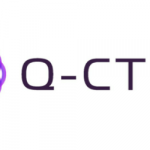The Quantum Leap Hinges on Worker Skills and Supply Chain Limits

(GAO.gov.blog) The GAO team interviewed experts, including federal agency officials about quantum technology’s prospects during their research for the complete GAO report on the “Status and Prospects of Quantum Computing in Quantum Communication and Communications.
This blog focuses on the section of the report that descxribes the need for the U.S. to develop a strong quantum workforce and address supply chain issues in order to maintain its leadership position in quantum technology hardware and software development. IQT-News summarizes the workforce and supply chain blog here.
What can be done to strengthen the workforce?
Right now, the U.S. educational system does not equip enough graduates with the right skills to undertake complex tasks required for quantum technology development. For example, other countries provide far more training in the production of superconducting circuits, an essential quantum computing component, according to 1 stakeholder. Further, quantum jobs often require skills in fields that don’t normally go together, like engineering and quantum mechanics. As a result, there are more quantum technology jobs than people to fill them.
To build a quantum workforce, the U.S. may need more training capacity in quantum engineering, circuit design, logic, and algorithm development. U.S. quantum firms may also want to hire more foreign nationals, which may be challenging because of visa requirements and the national security implications of quantum technology.
What can be done to address supply chain issues?
The quantum technology supply chain is global and specialized. Given the complexity of the supply chain, if a single link in the chain is unavailable, that could cause technology development delays and other setbacks. For example, quantum computers require super-cooling devices called dilution refrigerators, which are manufactured in Finland.
The quantum technology market is not currently large enough to support the commercial availability of specialized components. Manufacturing facilities, such as foundries, make money by producing a large quantity of an item. The small number of items needed for quantum technology research may not provide manufacturers financial incentive. Quantum foundries, or specialized manufacturing facilities, could help to produce quantum technologies at scale. In particular, they could help develop materials needed to enable quantum technologies, train the quantum workforce, and accelerate quantum technology development.
To learn more about the opportunities of quantum technology and the challenges facing its development, check out our new report.




















